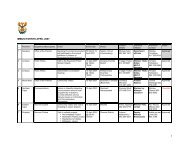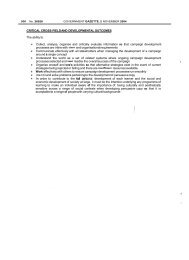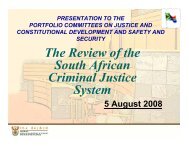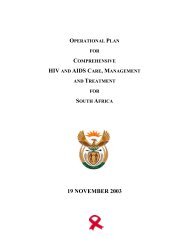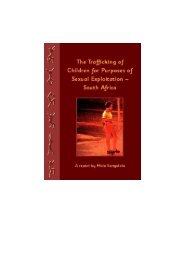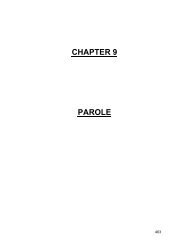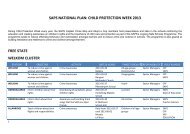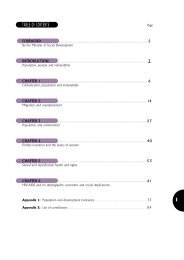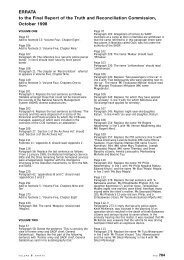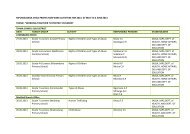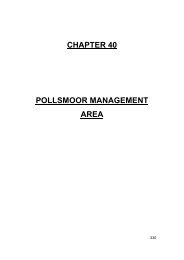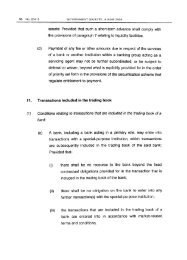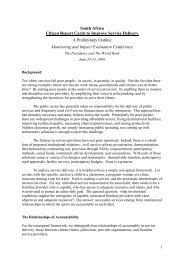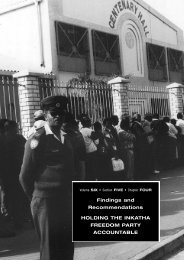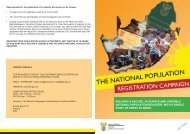Right-Wing Groups - South African Government Information
Right-Wing Groups - South African Government Information
Right-Wing Groups - South African Government Information
You also want an ePaper? Increase the reach of your titles
YUMPU automatically turns print PDFs into web optimized ePapers that Google loves.
1993, saying that the potential for conflict was so high that a bloodbath was<br />
unavoidable if the demands of the alliance were not recognised.<br />
42. H o w e v e r, General Viljoen ultimately supported participation in the democratic<br />
elections in 1994.<br />
PA RT TWO: SUMMARY AND ANALYSIS<br />
OF AMNESTY APPLICAT I O N S<br />
■<br />
OVERVIEW<br />
43. A large number of victim statements implicating right-wing perpetrators were<br />
received by the Commission, nearly all relating to violations committed from the<br />
late 1980s until the election in April 1994. The number of statements re c e i v e d<br />
showed a distinct increase in violations as the election approached, peaking in<br />
late 1993 when the political climate for extremism was at its height. Most violations<br />
occurred in the former Orange Free State and Transvaal and many were as<br />
racist as they were political in character.<br />
44. A total of 107 applications for amnesty were received from members of rightwing<br />
organisations. This figure does not include those applicants who were found<br />
not to be bona fide members of such organisations, or those who participated<br />
in right-wing activities while they were members of the security forc e s .<br />
45. The overwhelming majority (71 %) of applicants claimed membership of the<br />
Afrikaner Weerstandsbeweging (AWB). Ten per cent of applicants claimed<br />
membership of the Conservative Party (CP). The remaining 19 per cent of the<br />
applicants claimed to belong to a variety of organisations, including the nonspecific<br />
‘right wing’.<br />
46. Most applications for amnesty from right-wing applicants were heard and<br />
settled in the early stages of the Amnesty Committee’s work. Of these, 68 per<br />
cent were granted amnesty. Roughly half the applications were dealt with in<br />
c h a m b e r s 232 and half in hearings convened by the Amnesty Committee. Sixty<br />
per cent of the hearable applications and 67 per cent of the chamber matters<br />
w e re granted amnesty.<br />
232 See this volume, Section One, Chapter Three for more information about chamber matters.<br />
V O L U M E 6 S E C T I O N 3 C H A P T E R 6 P A G E 4 5 2



